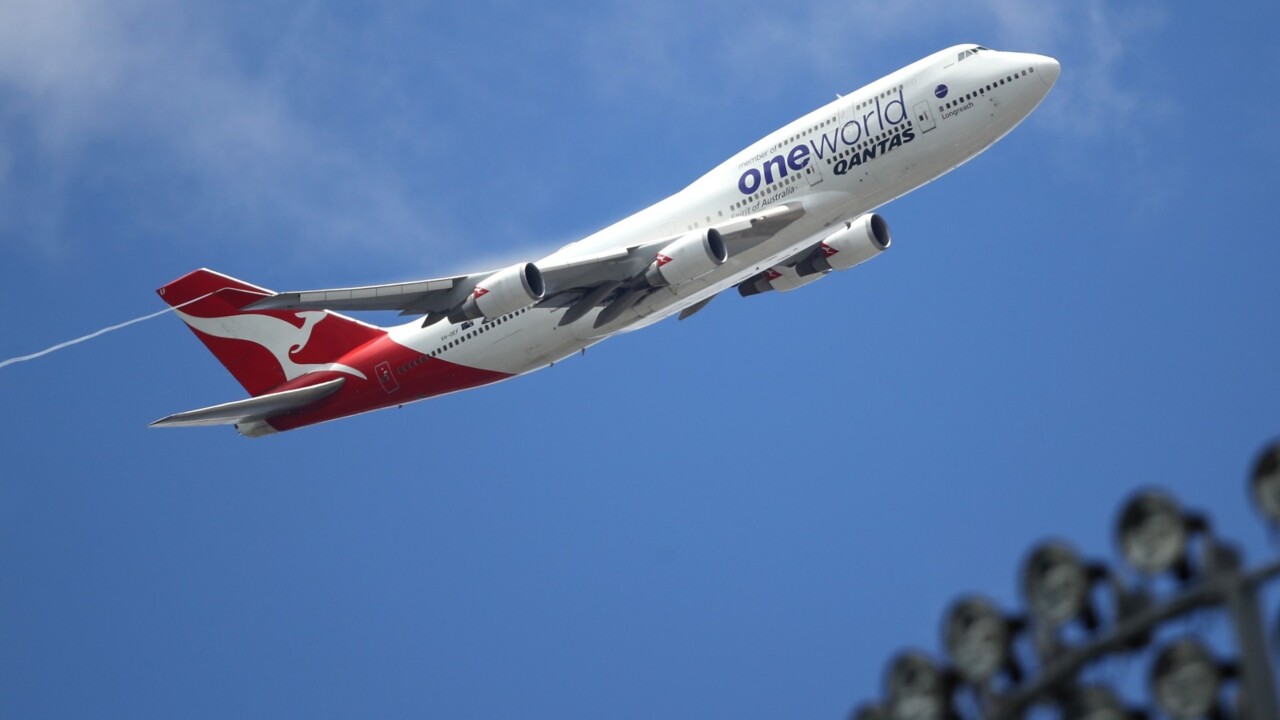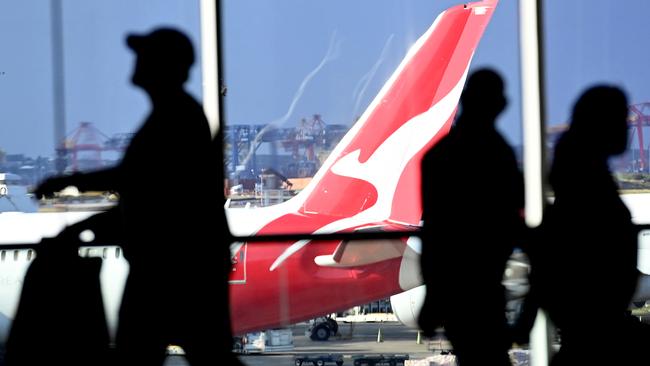Court approves $120m penalty for Qantas as a ‘necessary sting’ for selling tickets on cancelled flights
The Federal Court has agreed a $120m settlement reached by the ACCC and Qantas will be an effective deterrent for future non-compliance with consumer laws.

Business
Don't miss out on the headlines from Business. Followed categories will be added to My News.
Qantas can finally rule a line under one of the most shameful episodes of its 124-year history, after the Federal Court accepted a $120m settlement with the Australian Competition and Consumer Commission as a “necessary sting” for selling tickets on already cancelled flights.
Just over a year after the consumer watchdog launched legal action against the airline for what became known as the ghost flights saga, the matter has been finalised.
Federal Court judge Helen Rofe accepted the joint submissions of the ACCC and Qantas that a fine of $100m plus $20m compensation for customers was an effective deterrent to the airline for future noncompliance with Australian Consumer Law.
According to the facts of the case agreed to by the ACCC and Qantas, 86,597 customers paid $17.9m for seats on ghost flights — or services that were already cancelled — in the period from May 2021 and August 2023.
A further 883,977 customers were not told their flights had been cancelled for an average of 11 days, and as long as 67 days after the decision was made by Qantas to axe the service.
In a statement submitted to the court, Qantas admitted some senior managers were aware cancelled flights were not immediately removed from sale; that some customers booked tickets on flights that were already cancelled, and existing ticketholders were not promptly notified.
Barrister for the ACCC, Chris Caleo KC told the court Qantas was the largest domestic and international airline in Australia, carrying millions of passengers each year, which made compliance with consumer law “a priority”.
“It is important therefore that the penalty imposed is a necessary sting and is not capable of being perceived by Qantas as an acceptable cost of failing to have adequate systems and processes in place,” said Mr Caleo.
“The joint submission of the parties is that Qantas’s size and financial position means a significant penalty is required to achieve such deterrence.”

He pointed out that the law allowed for a much larger penalty, of up to $6.1bn, but it was agreed that in this matter it was neither meaningful or useful to apply such a calculation.
Ruth Higgins SC for Qantas said the airline was “sorry to have engaged in the conduct it has admitted in this proceeding” and outlined what had been done to ensure it did not happen again.
That included the implementation of an “automated closure solution” which usually took “within minutes or hours” to inform customers of a flight cancellation.
A flight cancellation pending marker was also being rolled out, Dr Higgins noted.
“We accept these measures could have been introduced earlier,” she said.
“Nonetheless, the fact Qantas has implemented this system indicates a desire to avoid contraventions of this kind in the future and in fact makes the prospect of a reoccurrence of the contravening conduct low.”
Qantas announced in May it would compensate customers who were sold tickets on already cancelled flights, to the tune of $225 for a domestic or trans-Tasman flight, and $450 for an international flight.
To date Qantas has paid out close to $10m. Those affected have until May 7, 2025 to register.
The sums paid are on top of refunds or alternative flights already provided to the customers.
Mr Caleo said Qantas had also agreed to pay the ACCC $400,000 for costs incidental to the court proceeding, within 30 days of the court’s order.
ACCC chair Gina Cass-Gottlieb said the agreed penalty was substantial and appropriate, given Qantas had benefitted financially from the conduct.
“Up to about 880,000 consumers were affected by Qantas’ conduct. People had made plans, and may have spent money on other related purchases, relying on the fact that the flight would depart as advertised,” said Ms Cass-Gottlieb.
“The delay in notifying them of the cancellation may have made it more stressful and costly to make alternative arrangements.”
The lawsuit filed on August 31, 2023, sent the Qantas share price plummeting and brought about the early retirement of former CEO Alan Joyce days later.
Initially Qantas set about defending the matter, arguing the airline sold a “bundle of particular rights” rather than flights to customers and it was therefore acceptable to alter the flight schedule as required.
But in an effort to rebuild Qantas’ reputation new CEO Vanessa Hudson sought to settle the matter, in the hope of moving forward.
Justice Rofe said she would issue her reasons for accepting the settlement reached between Qantas and the ACCC in due course.
More Coverage
Originally published as Court approves $120m penalty for Qantas as a ‘necessary sting’ for selling tickets on cancelled flights





